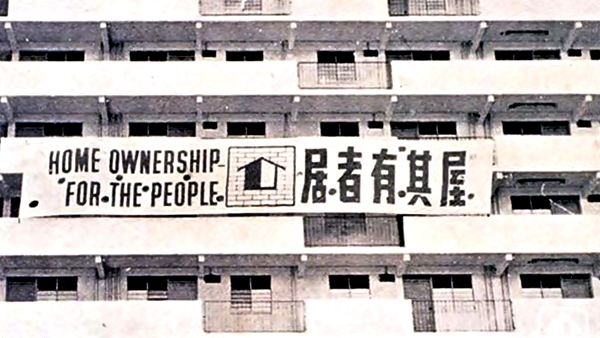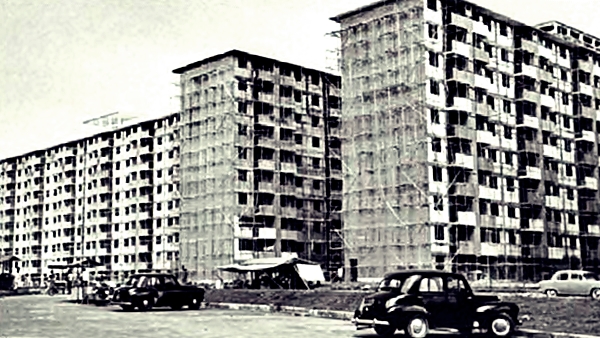It has been some months since I last made my entry, notably, the latest being an entry dedicated towards a man who some affectionately refer to as a founding father of modern Singapore.
His era is past, while the island celebrates her golden jubilee over this weekend at the Padang. A monumental celebration, recounting 50 years of peace & progress since independence in 1965. Amidst the air of euphoria, joy & pride, there is incidentally looming thoughts lingering of the imminent General Elections.
 Unlike 50 years ago, where there were plenty of opportunities to develop and put infrastructure in place, resulting in the cosmopolitan city we have today; the present day electorate look to the parliamentarians, policy makers & incumbent government with increasing expectations, and diminishing tolerance for trial & error policies.
Unlike 50 years ago, where there were plenty of opportunities to develop and put infrastructure in place, resulting in the cosmopolitan city we have today; the present day electorate look to the parliamentarians, policy makers & incumbent government with increasing expectations, and diminishing tolerance for trial & error policies.
The apologists would urge the people to be realistic, but the realists will urge the apologists to wake up their idea.
So, let’s start asking ourselves “Have there been adequate sound solution to the myriads of brick and mortar issues?” – note, we’re looking at the general empirical issues within the built environment, and shall be apolitical.
It’s already etched in stone that population will increase, and when population increases, the upkeep rises. Luxuries aside, let’s look at some of the fundamentals:
Roof Over The Head – the band of founding fathers in the 60s, conceived the concept of high rise state funded public housing development. Affordable housing was something that would give the people pride, sense of belonging & sense of ownership. Housing precincts were built up and people only had to walk in to select the unit of their choice.

 Today, given a vibrant economy, quickening pace of living and inevitably population increase, the public housing now maintains on a built-to-order basis that stagnated the process of delivery for housing. And since the demand is constantly on the rise, while the suspense to move into a completed unit averages ±54 months. Doesn’t this process create a retarded supply?
Today, given a vibrant economy, quickening pace of living and inevitably population increase, the public housing now maintains on a built-to-order basis that stagnated the process of delivery for housing. And since the demand is constantly on the rise, while the suspense to move into a completed unit averages ±54 months. Doesn’t this process create a retarded supply?
New home owners would also find themselves riddled with a ±20-25yrs debt (possibly may require re-financing facilities in the later years), to fulfill the payment to a unit in the air for 99 years lease, in which, they do not hold the deed to the land below their feet.
So, did it create a lifelong and potentially generational problem?
Dignified Employment – in every developed society, education equips the people with knowledge & skills, applicable for the workforce that generates revenue. Given the volatility and uncertainties of the global economies, employees (regardless blue or white collar) are susceptible to hire-and-fire situations.
 While there are increasing sky scrapping office towers and SOHO (small office home office) developments popping up, nobody really knows or predicts the duration of tenancy, of companies local & foreign. There was a mass exodus for manufacturing & logistics companies, when the global economy weakened during the Asian financial crisis. And more exodus took place when the Chinese doors opened to the world.
While there are increasing sky scrapping office towers and SOHO (small office home office) developments popping up, nobody really knows or predicts the duration of tenancy, of companies local & foreign. There was a mass exodus for manufacturing & logistics companies, when the global economy weakened during the Asian financial crisis. And more exodus took place when the Chinese doors opened to the world.
While there is constant campaigning from the relevant authority and agencies, urging people to upgrade their skills, the throbbing question is, are employers willing to double or triple the salaries of their upgraded skilled workers?
Consequently, upgraded skill workers would probably see a marginal salary increment, and would see the salary plateau, until such time where he or she is replaced by another worker who’s equally or better qualified and willing to settle for lesser wages.
Displaced workers in their 40s and beyond, with the burden of financing the overpriced housing, and financial crunch of raising a family in tow, often find it a lot harder to be granted employment that matches or offers more than their last drawn salary.
So, has the employment been dignified, or is it the modern form of slavery?
Food and Water Supply – this tiny island doesn’t really produce enough commodity to feed a quarter of the total population, much of everything ingestible is imported from neighboring countries (who also face their respective series of domestic issues). So when an unforeseen act of God takes place, and halves the yield of crops, this island is at the mercy of supply, or may be forced to pay higher prices.
 The island is surrounded by water, yet, there isn’t sufficient storage to stash potable water that could last the island long enough, if the tap from the north is turned off.
The island is surrounded by water, yet, there isn’t sufficient storage to stash potable water that could last the island long enough, if the tap from the north is turned off.
It’s not unheard of that with the presence of some technologies, high rise horticulture can materialize. Though the initial cost is high, the time taken for return can also be hastened. So if food & water made better affordable, wouldn’t the household savings be allocated towards other sectors of the economy?
 Water desalination is deemed a costly process, but only when weighed against the final product, which is potable water. There is also by-product harvested that can be put to good use within the eco-system and fertilizing of the much needed greenery that helps to keep the ambient temperature bearable.
Water desalination is deemed a costly process, but only when weighed against the final product, which is potable water. There is also by-product harvested that can be put to good use within the eco-system and fertilizing of the much needed greenery that helps to keep the ambient temperature bearable.
Waste Management – where there is human inhabitance, there will be refuse & waste. Though there is some level of awareness towards environment protection & conservation. Not everything is recyclable or immediately reusable.
 Evidently, population increment will give rise to waste & garbage. If waste disposal & management is well taken care of, it can potentially provide more gainful employment in the environment engineering sector. Subject to how thorough the processes are designed, up-cycled waste could also be applicable towards building material of sorts, such as grain & sand-like material for concrete or tiled footpath.
Evidently, population increment will give rise to waste & garbage. If waste disposal & management is well taken care of, it can potentially provide more gainful employment in the environment engineering sector. Subject to how thorough the processes are designed, up-cycled waste could also be applicable towards building material of sorts, such as grain & sand-like material for concrete or tiled footpath.
Transportation – people commute daily. With increased population, more commuting takes place. Apart from the increased frequency of outages of the subway trains, the crunch has also shifted towards buses and/or taxis. The authorities and agencies, in all their wisdom decided to enlarge bus fleets. Which then means, there’s increased vehicular activities on the limited roads.
 Getting more people into vehicles that barely move, isn’t adequately solving the problem of getting people from point A to B. And if commuters are required to transit more, in order to get to their destinations, is it truly being productive?
Getting more people into vehicles that barely move, isn’t adequately solving the problem of getting people from point A to B. And if commuters are required to transit more, in order to get to their destinations, is it truly being productive?
More thought is required to consider overhead and subterranean carriageways, but such works are costly & time taking to develop. It’s already quite obvious that these infrastructure are a little behind time, since the population will not stop increasing exponentially.
 Given the abundance of water engulfing the island, it shouldn’t be all that difficult for people to commute via waterways. Mathematical assumption suggests that it wouldn’t cost as much to build a series of jetties lining the coasts, while a fleet of shallow hulled vessels would cost just as much as a fleet of buses that congest the roads (and going nowhere). Compared to laying complex matrix of carriageways on land that require maintenance of traffic lights & comprehensive right-of-way traffic light controls, water is just water.
Given the abundance of water engulfing the island, it shouldn’t be all that difficult for people to commute via waterways. Mathematical assumption suggests that it wouldn’t cost as much to build a series of jetties lining the coasts, while a fleet of shallow hulled vessels would cost just as much as a fleet of buses that congest the roads (and going nowhere). Compared to laying complex matrix of carriageways on land that require maintenance of traffic lights & comprehensive right-of-way traffic light controls, water is just water.
The above mentioned are merely some issues that are hot button and integral to people’s livelihood. There are plenty more issues, and they’re a little more technical. I might just find the time over the long weekend to familiarize, and in time, be sharing thoughts here. So stay tuned…

Pingback: Daily SG: 6 Aug 2015 | The Singapore Daily